Blood, Wine and Wanderlust: How The Witcher 3’s DLC motivated me to seek my own adventures
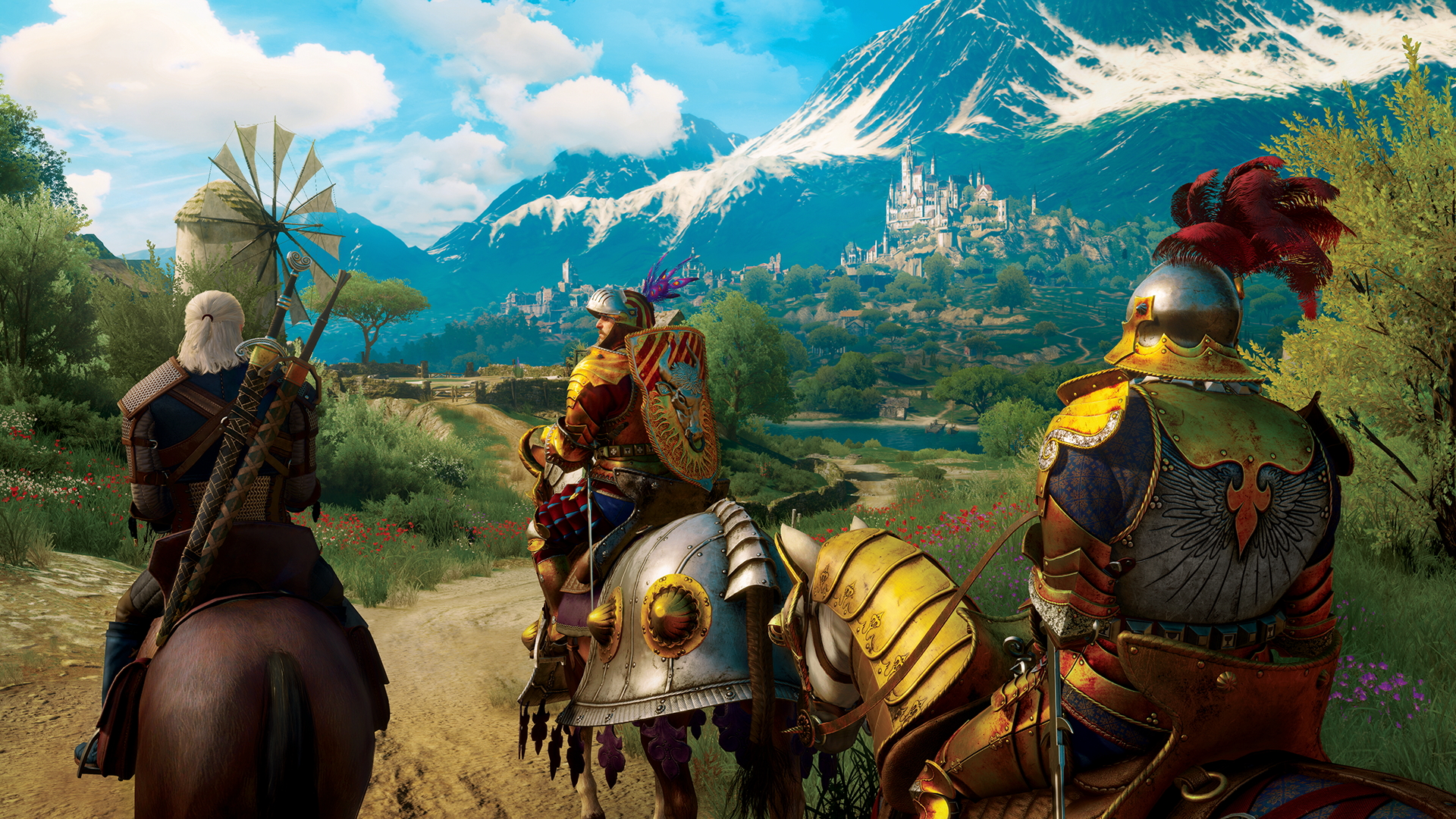
Sometimes I envy the witchers in The Witcher 3. Okay, their lives are filled with occupational hazards, like getting their heads bitten off by griffins and having their bits blasted to pieces by overly amorous sorceresses. Their horseback-inflicted crotch welts could probably make even the most battle-hardened doctor chuck up his breakfast. And on top of that, there’s the whole “pass this test or die” thing, which makes university exams seem like a walk in the park.
And yet, I still envy them. Why? Because of their freedom. Relative freedom, of course, because they keep getting quests lobbed at them by well-meaning but ultimately irritating plebs. But what are quests if not sporadic freelance work, anyway? Being a Witcher, in broad strokes, is about having the liberty to pop off to anywhere you fancy, seducing the local lasses and heading off for the next town the morning after. You see a castle or a big dragon in the distance, and you can go there. Or you can stay where you are, if you want.
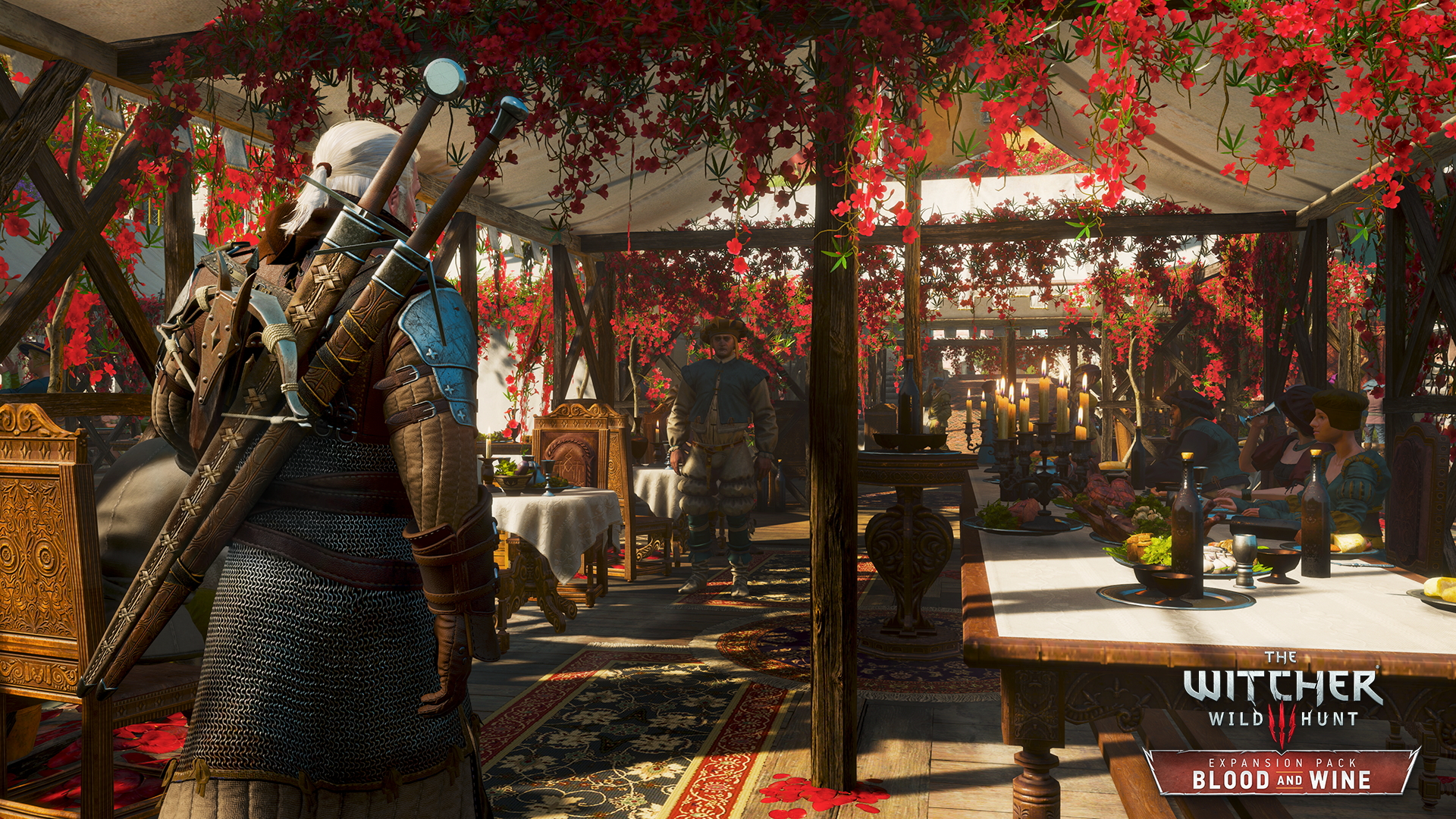
When I booted up Blood and Wine, the most recent Witcher 3 DLC, for the first time, I actually gasped. The cynic in me - well, the games journalist in me - muttered things like, “All they’ve done is turn the contrast up,” and, “This is so offensively, stereotypically French that I’m surprised no one’s walked by with a string of onions round their neck, yelling about baguette price inflation and the relative effectiveness of the guillotine.” But the child in me glowed.
Blood and Wine’s brilliant Toussaint reminds me of pottering around the South of France, which in turn reminds me of travelling, which reminds me that London - for all its benefits - is often a dreary, grey place to live. If you turned the contrast up on London, you’d just get a louder shade of beige. I mean, there are a lot of things I love about London. It’s got perks, and it’s got parks, and it’s nice to feel like everything in the UK is centred around your city. But it sometimes feels like this huge cage that stretches up to the sky. It’s comfortable in the cage, it’s quite nicely furnished and you have everything you’ve ever wanted, but that doesn’t change the fact that you can see the bars.
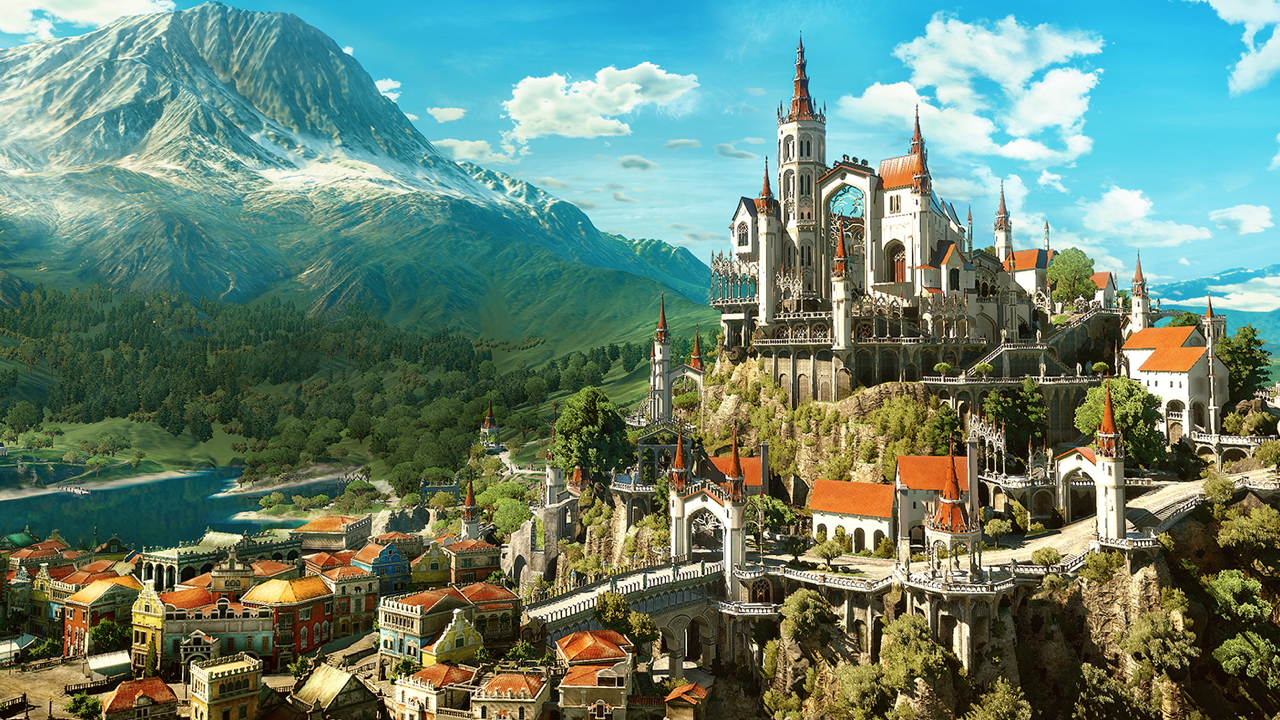
One of the things that Blood and Wine gets so right is the horizon. When you’re out in the sticks, the most remarkable thing - to me, at least - is being able to see the curve of the world. The whole sky stretches out like a huge, blanketed dome, right to the edges. Unlike London and its barrage of buildings, Blood and Wine’s sky is vibrant and vivid, welcoming you and inviting you to adventure with outstretched arms reaching to the far corners of the map.
Are games a form of escapism? Sometimes, yes, but often not. They don’t require as much imagination as a book, or as much undivided attention as a film. Escapism in a game is not so much about taking up a large chunk of your brain’s processing power and distracting you from life, but rather, it represents something that’s missing from your life, to provide you with an experience that you can sink into.
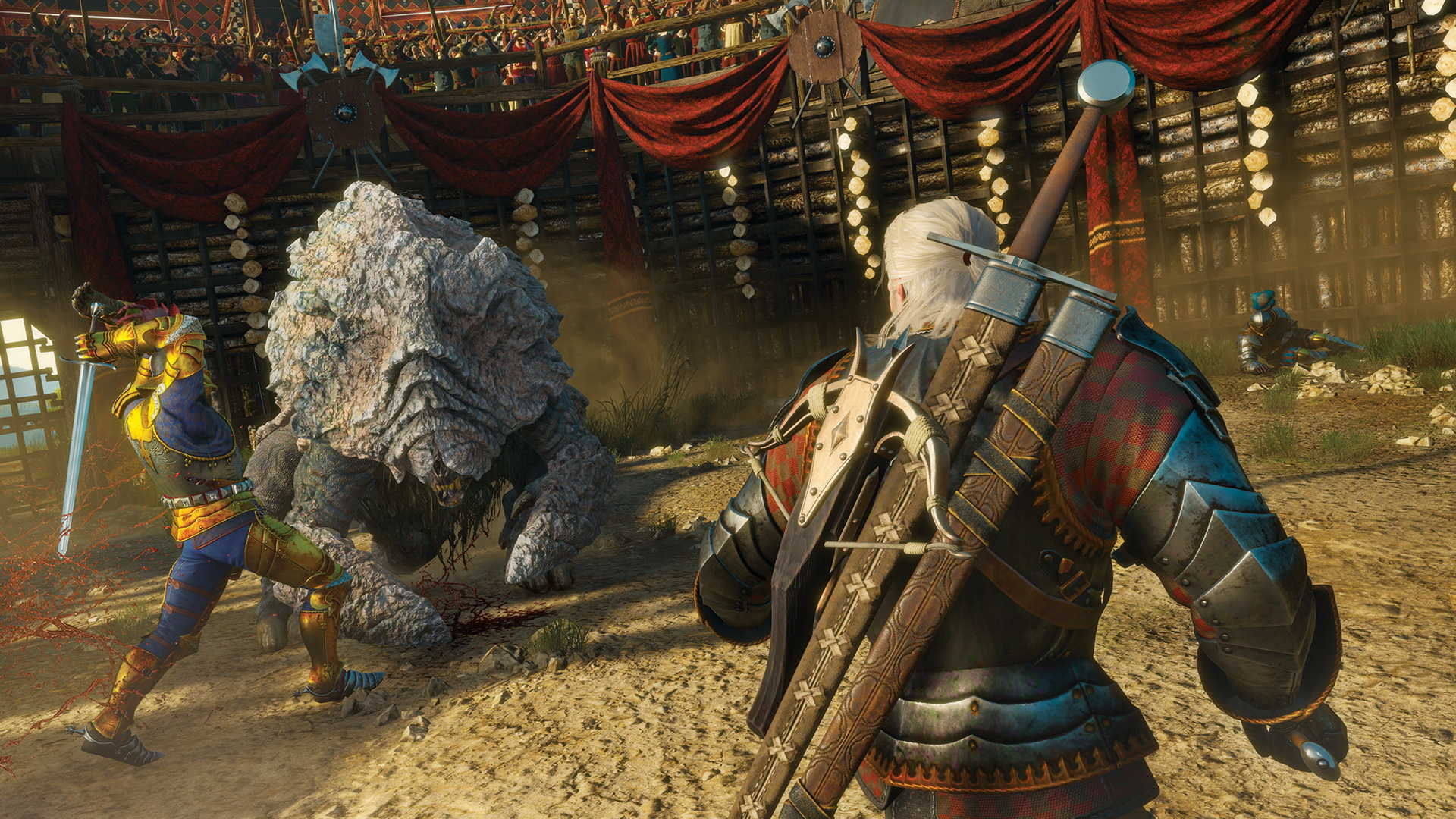
Blood and Wine tickles my adventure gland like no other game has managed. It might not capture the realities of travel - the tedium of waiting in airports or desperately trying to find out how the Swedish Metro works with little else but the words for ‘sandwich’ and ‘tea party’ in your vocabulary - but it gets everything else right on the nose.
Weekly digests, tales from the communities you love, and more
You can wander around and hear the tapestry of foreign languages, tangled and melodic and incomprehensible in your ears; see architecture that looks like someone attempted to recreate the buildings of your home country from half-remembered descriptions; and experience the novel colour combinations of a different climate, suited to the environment and weather in a way that makes sense, but still looks strange. In the latter case, you can’t help but feel your eyes trip over the new sensation of orange-and-white plastered houses instead of red brick.
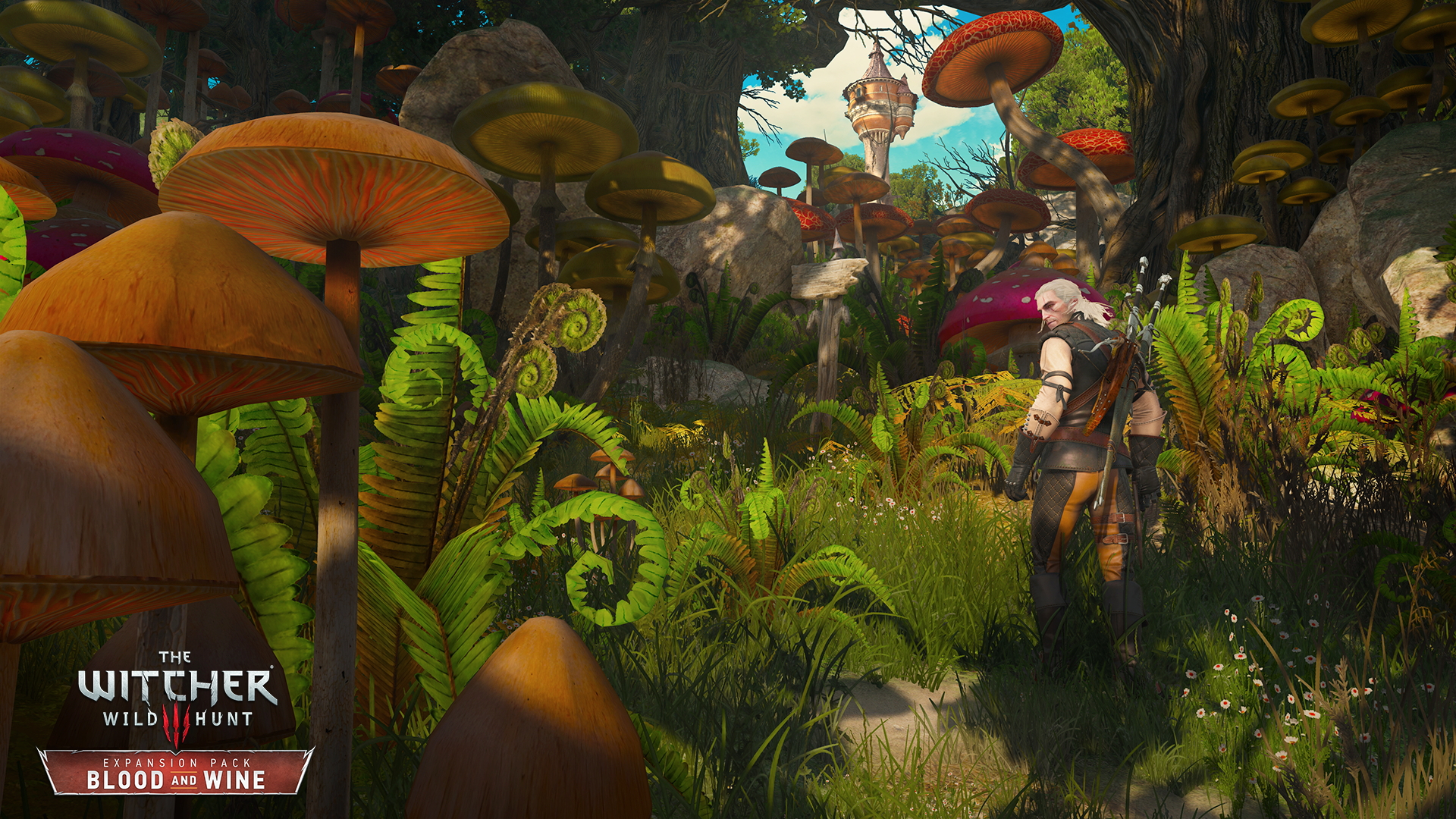
Geralt is as much a stranger in this land as you are in other countries. He doesn’t know the customs, but as long as they involve drinking or flirting, he’s willing to learn. The wildlife is intriguingly different, the most outstanding of which is a new type of enemy, Archespores, that are as much flora as they are fauna, spewing acid as bright as its neon-orange petals.
There’s even an interesting parallel between the complexities of the game’s inventory and character management, and trying to keep everything organised and at hand when you’re abroad. Figuring out how to stuff all your tacky souvenirs into a full suitcase is basically a smaller version of Geralt’s capacious saddlebags, stuffed with hoarded swords and that chicken sandwich you pickpocketed from a corpse.
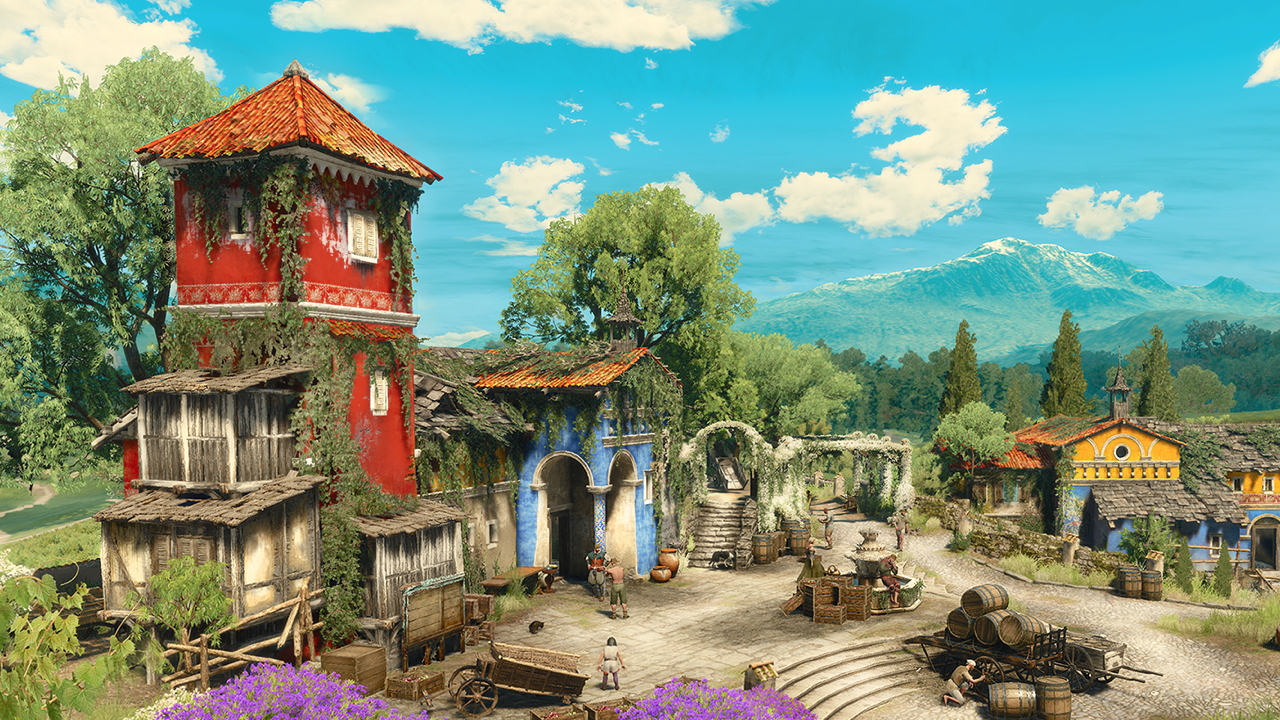
The Witcher has always been about wandering off the beaten track, taking your time to meander around the world. Returning to Novigrad and the desaturated world of Velen and Skellige feels like returning to the UK after spending a month cosied up in a beach hut in Bali. You have to go back to life, to the day-in-day-out of a world you already know pretty well. There isn’t any novelty left, no exotic drinks or accents, and once again you’re surrounded by the same old faces and dialogue.
Familiarity breeds contempt, apparently, though I don’t necessarily agree; I think familiarity breeds complacency. You know your strengths, you know where you stand in society and you know where the local shops are. But there’s no challenge, and no unexpected curveballs that test you and your mettle.
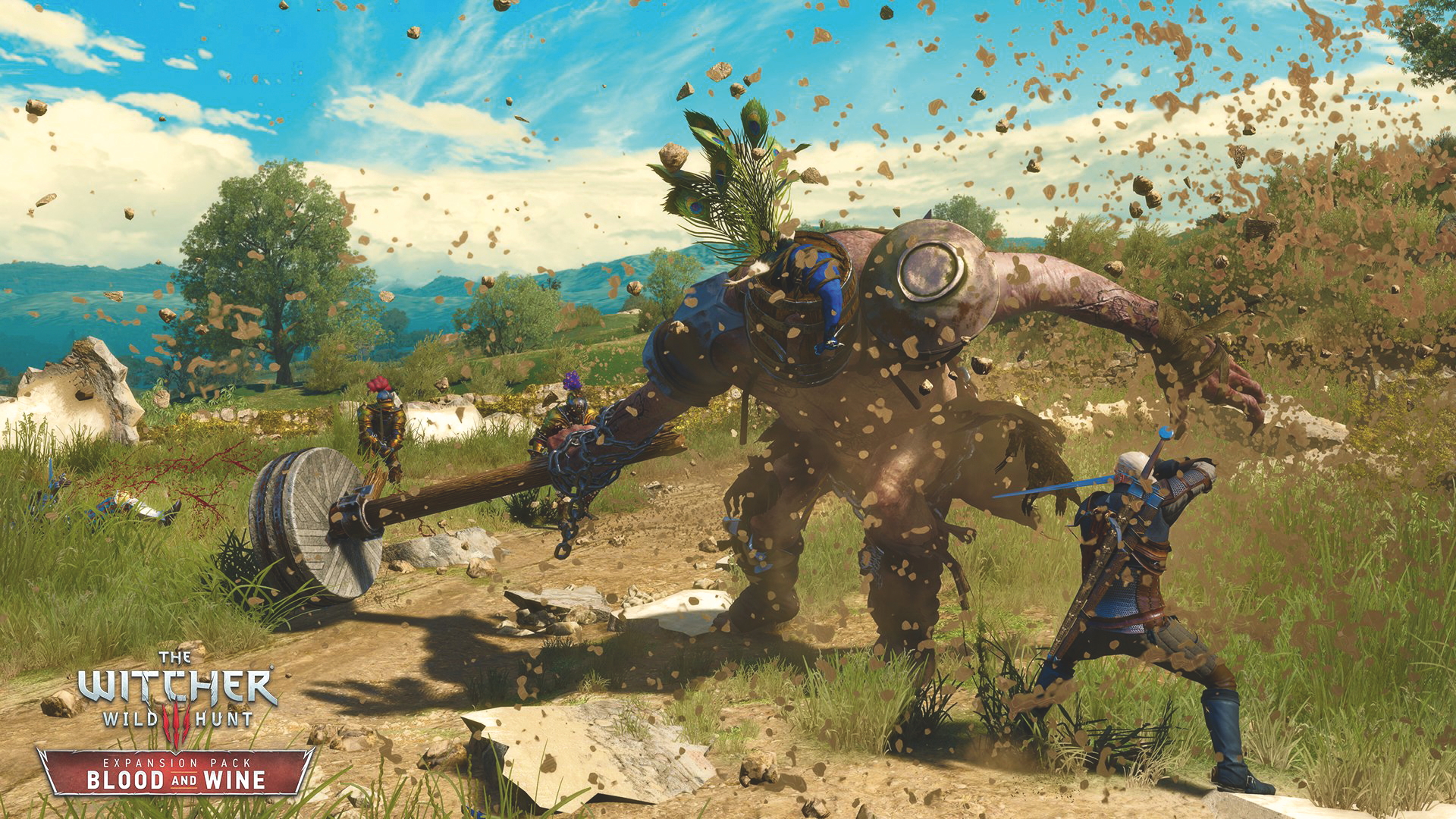
That’s how it felt in Blood and Wine. From the moment you step into that world, you’re out of your depth. Your first task - first task! - is to battle a giant. Giants don’t even pop up that much in the main game; they’re horribly difficult to fight and the game normally builds you up to it with a long, drawn-out quest. That’s not how they roll in Toussaint. You land in the country, a giant throws stuff at you, DEAL WITH IT. It’s a wonderfully bizarre welcome, and a fantastic example of how surprising a new locale can be.
And then, at the heart of it all, Blood and Wine changed Geralt. Not visibly, or tangibly - though his mutated skills are considerably more useful - but in the same way that my Geralt changed after I completed the main game. I knew things about him I didn’t know before; I’d been through things with him that would change any man.
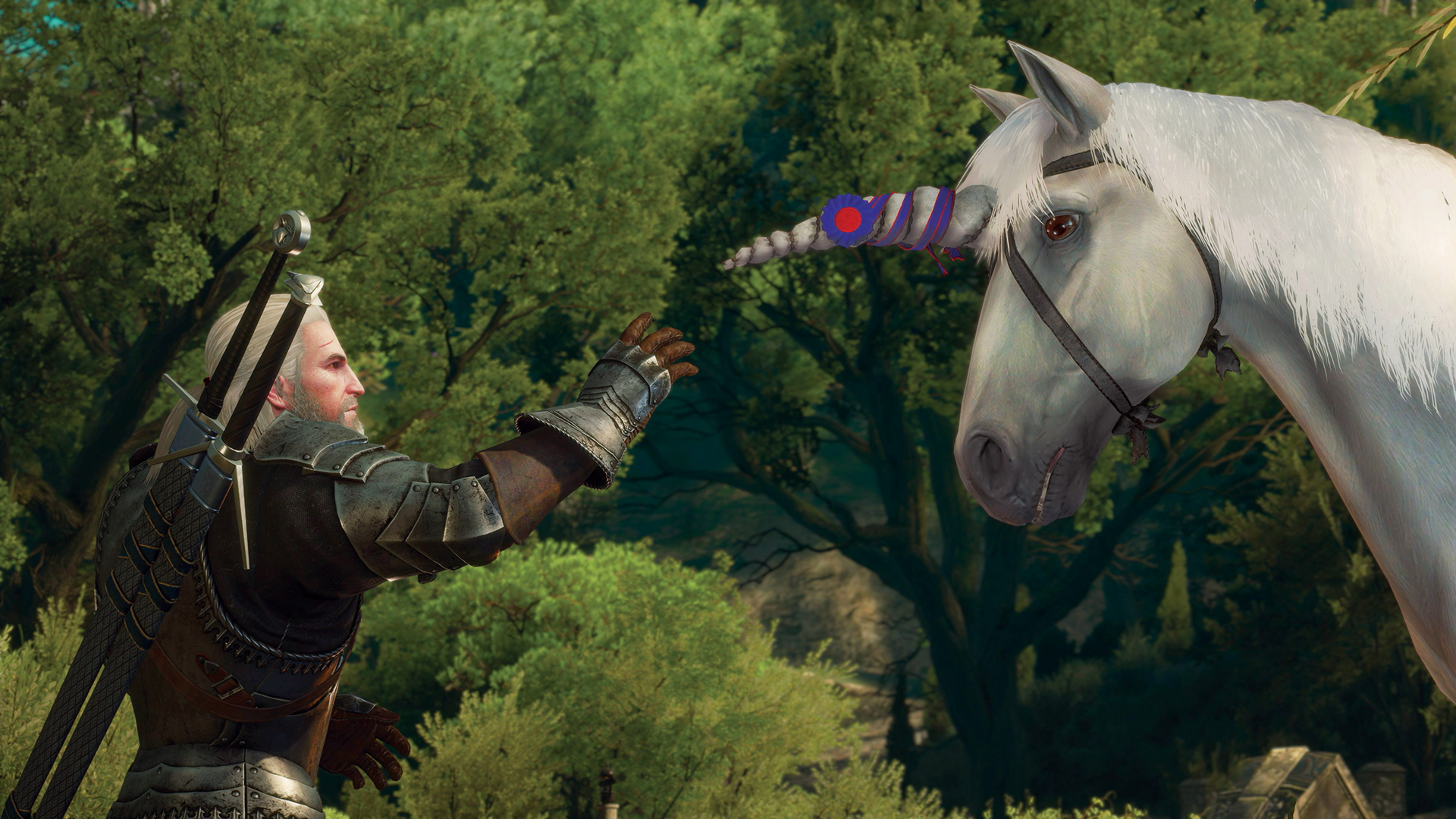
Having spent a few weeks in Toussaint, mixing with the weird and wonderful locals, taking part in their lives and their customs, Geralt returns to Velen as a different person. He has a house in Toussaint; he has none in Velen. He has a major-domo and a chef in Toussaint, but in Velen, he has a castle of rag-tag refugees who mostly resent him (many tried to kill him at one point or another). Toussaint felt more like home, even though it was as much about wandering as any other part of The Witcher. Even its folks were more welcoming, better suited to Geralt’s own flippant, sassy personality than the dreary, drunken lot back in Novigrad.
If I stayed in Toussaint, though, eventually the colours and charm would fade, just like they did in Novigrad. When Geralt first arrived in White Orchard, the game’s first area, it was just as exciting - new experiences yet to be discovered, new people, new landscapes, new life. But even new life gets old. What you need to ask yourself is this: do you want to spread your wings and fly towards adventure, or learn to love the cage and the safety it offers?
This article originally appeared in Xbox: The Official Magazine. For more great Xbox coverage, you can subscribe here.

Kate Gray is an award-winning writer with over a decade of experience in games journalism. Kate has bylines on a variety of websites which include GamesRadar+, The Guardian, Buzzfeed, Kotaku, Vice, Rock Paper Shotgun, and others. Kate is now writing the good words over at Nintendo Life, and can still be found tweeting about nice things and taking lots of photos of food.


